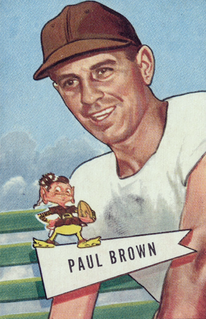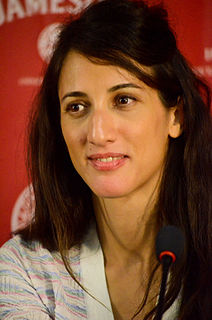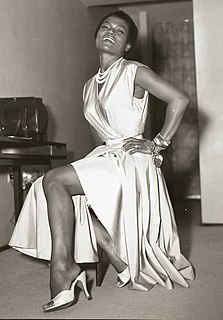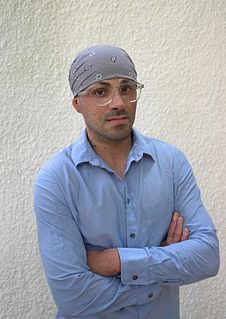A Quote by Andreas Feininger
The first impression of a new subject is not necessary the best. Seen from a different angle or under different condition it might look even better. Always study a three - dimensional subject with one eye closed.
Related Quotes
Real anatomy exists in three dimensions, so any time you can view anatomical data in 3D, you'll have a much more accurate picture of the subject, ... Even multiple two-dimensional CT slices can never allow you to understand a subject's dental condition as quickly or as accurately as a quality 3D visualization.
If you are not a New Yorker, when you arrive there for the first time you have the impression you grew up there because you've seen it in so many films. It's been filmed from every single angle and by so many different filmmakers that you know the streets, the sidewalks, the architecture, the cabs, the temper of the people.
Teaching, like any truly human activity, emerges from one's inwardness, for better or worse. As I teach I project the condition of my soul onto my students, my subject, and our way of being together. The entanglements I experience in the classroom are often no more or less than the convolutions of my inner life. Viewed from this angle, teaching holds a mirror to the soul. If I am willing to look in that mirror and not run from what I see, I have a chance to gain self-knowledge-and knowing myself is as crucial to good teaching as knowing my students and my subject.
I think every movie I've made after 'Indiana Jones,' I've tried to make every single movie as if it was made by a different director, because I'm very conscious of not wanting to impose a consistent style on subject matter that is not necessarily suited to that style. So I try to re-invent my own eye every time I tackle a new subject.
Distinguish open-minded people from closed-minded people. Open-minded people seek to learn by asking questions; they realize that what they know is little in relation to what there is to know and recognize that they might be wrong. Closed-minded people always tell you what they know, even if they know hardly anything about the subject being discussed. They are typically made uncomfortable by being around those who know a lot more about a subject, unlike open-minded people who are thrilled by such company.
So, ultimately, in order to understand nature it may be necessary to have a deeper understanding of mathematical relationships. But the real reason is that the subject is enjoyable, and although we humans cut nature up in different ways, and we have different courses in different departments, such compartmentaliz ation is really artificial, and we should take our intellectual pleasures where we find them.
What I found interesting in dance is the idea that my work has always been dealing with the nervousness between the human subject as a subject and the human subject as a form. And if you look at my dance films, there are always these cuts between the dancer as a form, the dancer as a subject, and this kind of very harsh treatment of the dancer as someone who's actually drawing with their body.
We all learn best in our own ways. Some people do better studying one subject at a time, while some do better studying three things at once. Some people do best studying in structured, linear way, while others do best jumping around, surrounding a subject rather than traversing it. Some people prefer to learn by manipulating models, and others by reading.




































